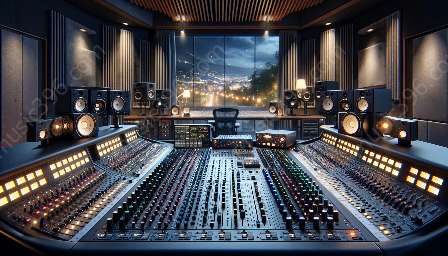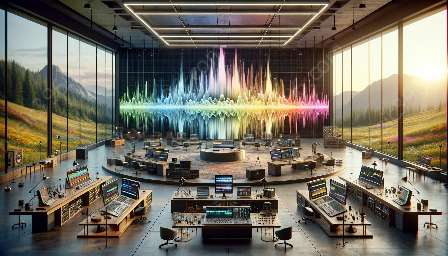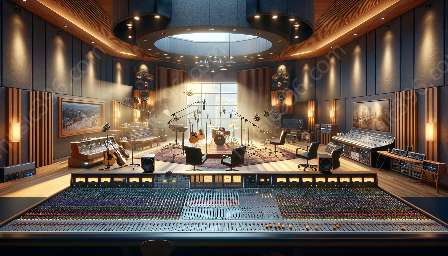Live recording is a thrilling and dynamic process that captures the energy and excitement of a live performance. However, the role of post-production in live recording is equally significant, as it allows for refining and enhancing the raw live audio to maximize its impact. In this topic cluster, we will delve into the crucial role of post-production in live recording, its compatibility with live recording techniques, and its intersection with sound engineering.
Understanding Live Recording Techniques
Before delving into the role of post-production in live recording, it's essential to understand the significance of live recording techniques. These techniques encompass various aspects, including microphone placement, signal routing, and capturing the nuances of a live performance. By utilizing specialized equipment and expertise, live recording techniques aim to faithfully capture the essence and energy of a live event, delivering an authentic and immersive experience for listeners.
The Impact of Sound Engineering on Live Recording
Sound engineering is pivotal in the realm of live recording, as it involves the manipulation and optimization of audio signals during the recording process. Skilled sound engineers employ their expertise to ensure optimal sound quality, manage signal levels, and address potential challenges such as background noise or acoustic variations. Through precise control and fine-tuning, sound engineering contributes to the creation of high-fidelity live recordings that faithfully represent the original performance.
The Crucial Role of Post-Production
Post-production serves as a vital stage in the live recording process, offering numerous opportunities to refine and enhance the recorded material. This phase involves editing, mixing, and mastering the raw audio to achieve an optimal sonic result. Post-production enables sound engineers to address imperfections, enhance the overall audio quality, and create a cohesive and balanced sound representation of the live performance.
Editing and Arrangement
During post-production, skilled audio engineers meticulously review the recorded material to identify areas for improvement. They may need to make adjustments to the timing, remove unwanted noise, or seamlessly blend different sections of the performance. Moreover, arrangement and sequencing of the recorded tracks play a crucial role in creating a captivating and seamless listening experience for the audience.
Mixing and Sound Enhancement
Mixing, an integral part of post-production, involves balancing individual audio elements, adding effects, and spatially positioning sound within the stereo field. Sound engineers carefully fine-tune the mix to convey the emotional dynamics of the live performance while ensuring clarity and impact. Additionally, sound enhancement techniques such as equalization, compression, and reverb are employed to elevate the sonic quality and coherence of the recording.
Mastering and Final Touches
The final stage of post-production, mastering, focuses on refining the overall sonic character of the live recording. It involves optimizing the audio for various playback systems, ensuring consistent volume levels, and adding the finishing touches to achieve a polished and professional sound. Mastering also addresses technical considerations such as file formats and metadata to prepare the recording for distribution and consumption across different platforms.
Enhancing Live Recording Experiences
By embracing the role of post-production in live recording and leveraging sound engineering techniques, audio professionals can elevate the quality and impact of live recordings. Through meticulous editing, skillful mixing, and precise mastering, post-production not only rectifies imperfections but also enhances the emotional and sonic depth of live performances. The culmination of these efforts is an immersive and captivating live recording that resonates with audiences and faithfully preserves the essence of the original live event.
In conclusion, post-production plays a crucial role in live recording by refining and enhancing the raw audio captured through live recording techniques. When complemented by sound engineering expertise, post-production empowers audio professionals to deliver compelling and high-fidelity live recordings that captivate listeners and faithfully represent the energy and artistry of live performances.


























